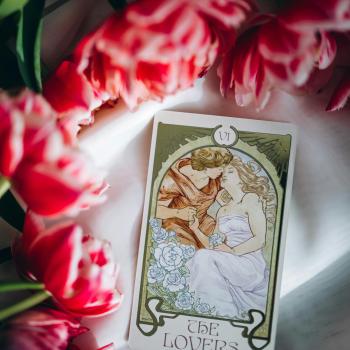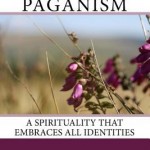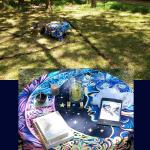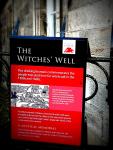
The term theology was coined by Cicero in 45 BCE in his book, De Natura Deorum (“On the nature of the Gods”). The book presented three different perspectives on theology – the skeptical, the Epicurean, and the Stoic, and was presented in the form of a dialogue between the three viewpoints.
What can we learn from this? Pagan theology can be discursive and involve dialogue between different schools of thought. It can include skepticism and non-theism. It does not lay down dogma or doctrine, but is exploratory.
The word theology means “reasoning about the Divine”. There are various different ways of doing theology – there is apologetics (explaining your religion to a member of another religion or belief system); systematic theology (an attempt to lay out your theology in a systematic and logical way); philosophical theology (theology based on the ideas of philosophy); mystical theology (an account of the Divine based on direct mystical experience); postmodern theology (theologies that take account of postmodernist theory); popular theology (deriving theology from the ideas of the whole community, rather than from academic theologians only); and contextual theology (fitting your theology to the cultural context).
There are also many different styles and schools of theology, some of which are of interest to Pagans and have influenced the Pagan revival – these include process theology (the idea that the Divine is a process, changing and growing with humanity, not an entity); Transcendentalism (the idea that we can transcend all religious belief systems and encounter the Divine directly); feminist theology (theology informed by feminist ideas, including the Goddess); queer the0logy (theology informed by LGBTQ sexuality); and liberation theology (liberation from unjust economic, political, or social conditions).
Other ideas that might inform Pagan theology include feminism, queer theory, and deep ecology. We should also look to other religions within the same dharma-space, such as Hinduism, Taoism, Shinto, and indigenous religions.
Theology is not only the theory of what deities are; it is also about ethics – how we relate to ourselves and other beings. It also includes theodicy (explaining how evil occurs). It is the theory that underpins ritual practice. What does it mean to call the quarters? Why do Wiccans consecrate cakes and wine? Why do we cast a circle? Why do Heathens bless their ritual space with mead? Why do some Pagans make offerings to the deities? What is prayer? What is magic?
A Pagan theological conversation is happening, but many people are worried that it will involve the formulation of doctrine. I think this is very unlikely, especially given the wide variety of ideas in Paganism.
Hinduism has many different schools of thought, and none of them are branded as heretics; they co-exist peacefully. The word haeresis (from which heretic is derived) originally meant a school of thought, rather than a deviation from the “one true way” of orthodoxy.
It is more likely that we will settle for unexamined assumptions about how the world works if we fail to have a theological conversation. For instance, the gender binary is widely accepted among Pagans, and we need to have a conversation about the gender of deities, polarity, and how that affects sexuality. There have been a number of excellent articles relating to gender, sexuality, and polarity; but sometimes it feels as if queer Pagans are lone voices crying in the wilderness, and heterocentric Pagans proceed unabashed with their heteronormative agenda.
We need to talk about whether Paganism is a “nature religion”, a “fertility religion”, or something else. If Paganism is a nature religion, how come so many Pagans are so fixated on mythology instead of learning about the natural world?
Pagan theology has much to contribute to the interfaith theological dialogue. Because Pagan traditions are world-affirming, non-dogmatic, generally Nature-loving, erotic, mystical, queer-affirming, and feminist, we have an unique perspective to offer.
















